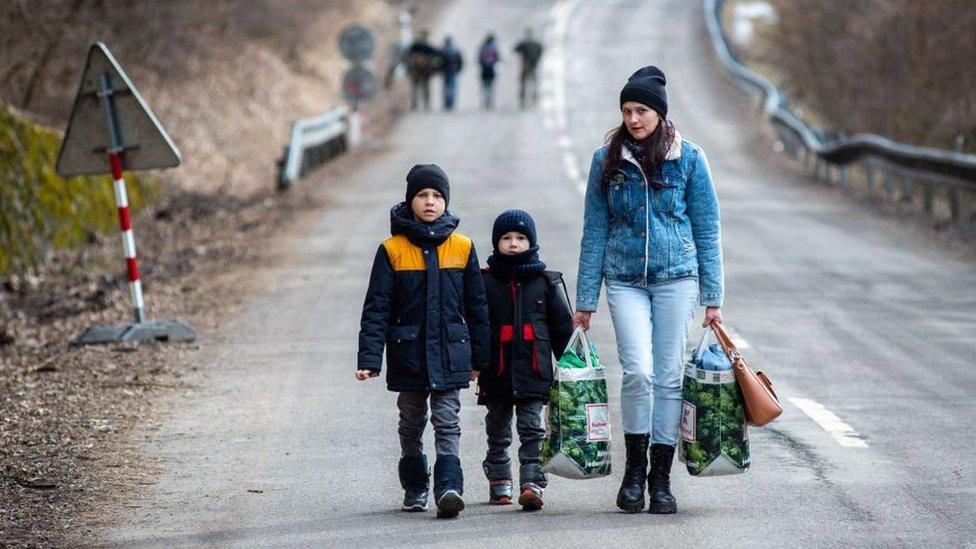Ukraine War: Families want pet quarantine rule change
- Published
Ukrainian families in Wales say settling has been harder as their pets are not with them
Ukrainian families in Wales have said settling has been harder because their pets cannot be with them.
Under Welsh rules, many animals brought over have to be in quarantine centres for up to four months.
Elsewhere in the UK they can quarantine in homes after health checks.
The Welsh government said it wants to reduce the risk of rabies and has "concerns about how the current home isolation process can be monitored and enforced effectively".
Marianna Koniushenko, 18, who fled to Cardiff with her family, said her two dogs would help the trauma and anxiety she suffers after escaping Bucha in Ukraine.
Along with brother Roman, 14, and mother Larysa Martseva, she managed to escape, despite people in cars in front and behind them being killed by Russian troops.
But they had to leave their Rhodesian Ridgebacks Trisha and Vinchi in Dover when they arrived the UK on 26 April.
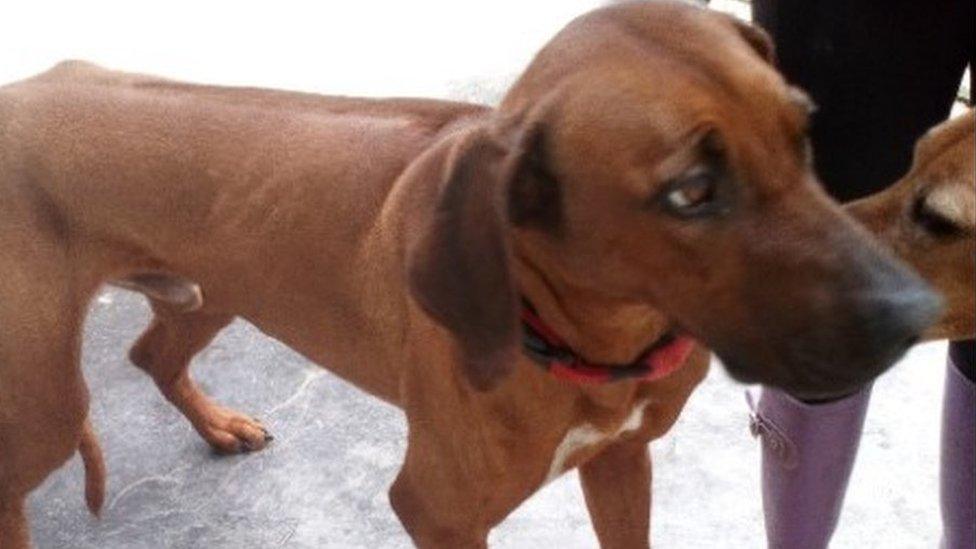
The family's dogs are about 220 miles away in Blackpool
They are now in kennels in Poulton-le-Fylde, south of Blackpool and they do not know when they will be reunited.
Ms Koniushenko said she is suffering from trauma following their experiences, adding: "I think the dogs could help me. I can hug them and tell them all about my problems.
"I feel really upset. It's like a part of me. The dogs are a part of our family."
Her mum said: "My children have lost a huge part of their emotional support. Their lives - their happy lives in their country - changed just like that.
"They had a nice life and it's very important for all of us to be all together."
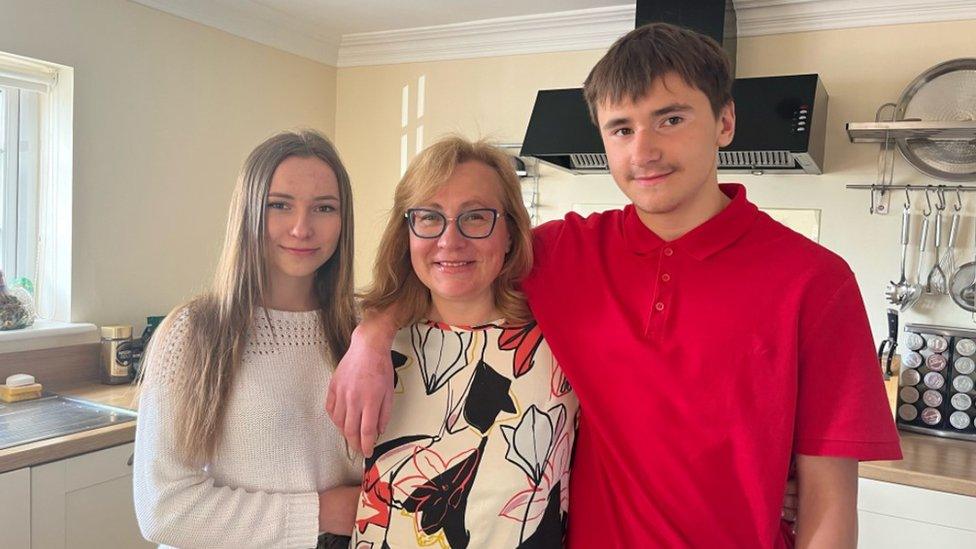
The family are settling into life in Cardiff - but important members are missing
The family has been sent photos of the dogs by staff at the kennels, but Ms Martseva added: "I was crying when I saw the photos because it's like giving children to an orphanage.
"We love Wales and our host family but half of our family isn't here."
The family pleaded "please let the dogs be with us", with Ms Martseva saying: "They are a five hour drive away. At least it would be great if the kennels were in Wales we're ready to drive to see them every day but we can't."
In Montgomery, Powys, on the border with England, three generations of the Komrokova family now live with a host family.
Their three cats Senia, Charly and Flora are in a cattery, and they are trying to secure a temporary home for them nearby, in England, so they can visit them.
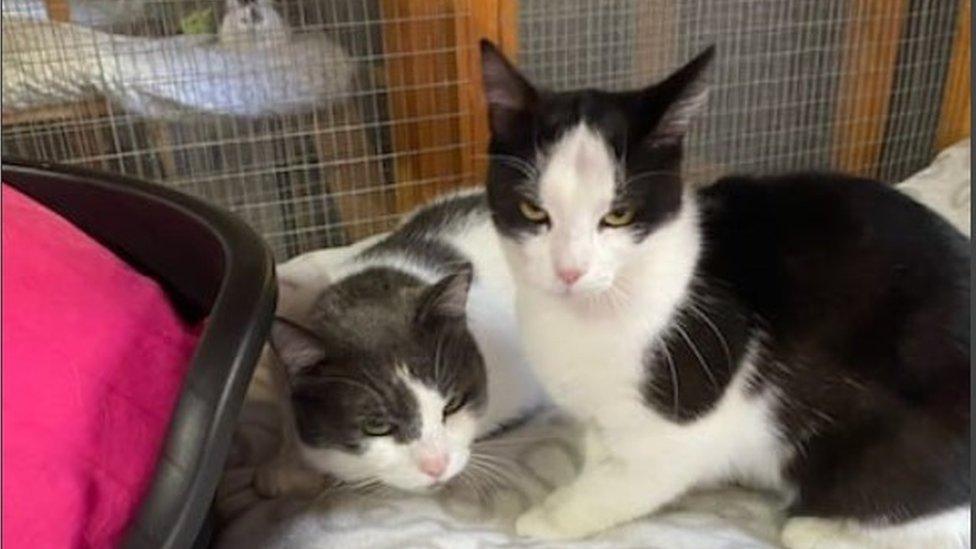
The Komrokova family want their cats to be moved to quarantine nearer where they are staying
Rita, eight, who has additional learning needs, finds comfort from spending time with the cats.
Mark Michaels, who is hosting the family, said: "We're a stone's throw from England here. You look out of the window and England is there it just seems desperately unfair. They would have chosen to be in England if they'd known they couldn't be with their animals."
Vladyslav Sdarikov, 24, who lives in Conwy, said he and his girlfriend, Darya Holodiak would have thought of different options if they had known their one-year-old pug Taylor had to quarantine in a kennel.
Mr Sdarikov said: "We cannot have him because of this invisible border for animals."
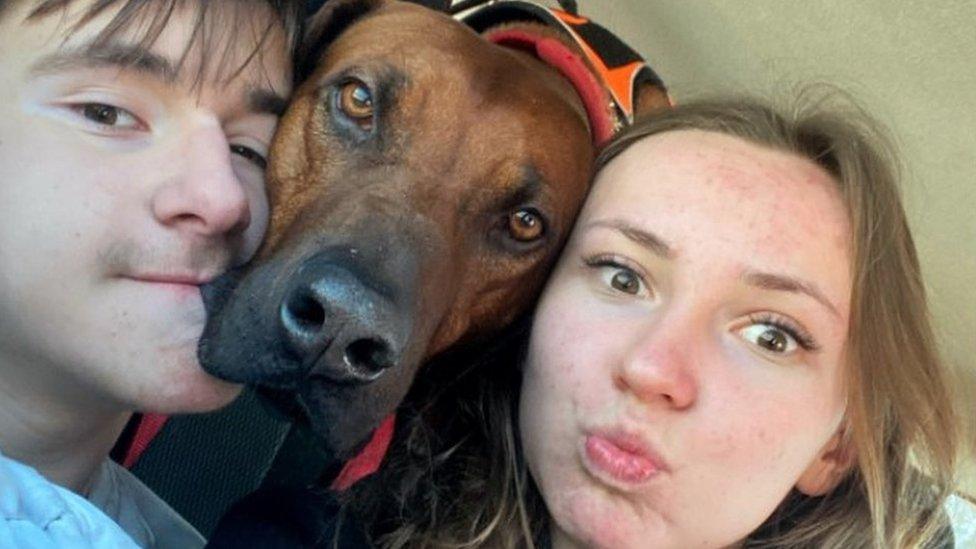
Marianna and Roman want to be reunited with their dogs
Rural Affairs Minister Lesley Griffiths said she worked closely with the chief veterinary officer when considering the rules.
"We haven't had rabies in this country for 100 years," she said.
"This is about protecting the animal that arrives from Ukraine. It's about protecting animals here in Wales and of course it's about public health as well.
"England and Scotland have chosen home confinement as a form of quarantine - how do you enforce that? How do you ensure that it absolutely takes place? It's impossible in my view."
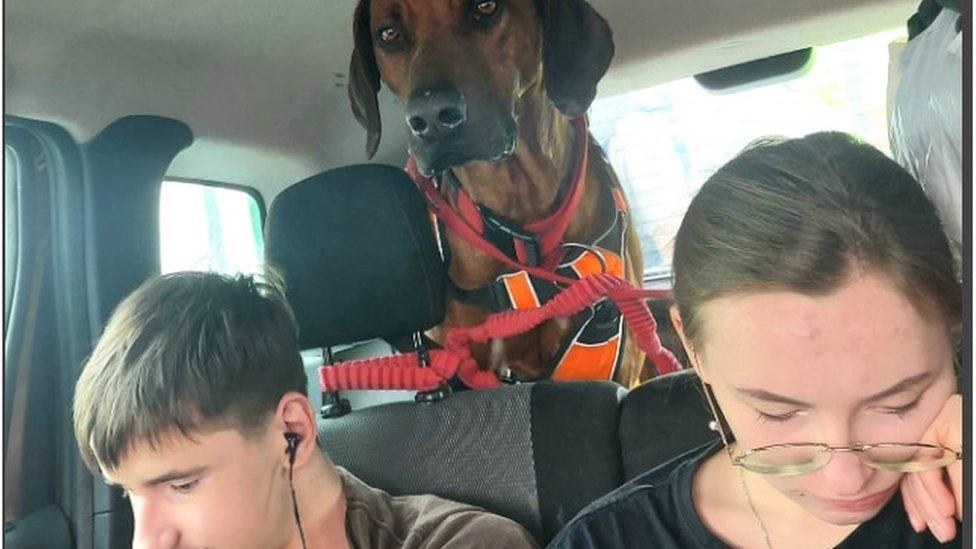
Roman and Larysa made the journey with their dogs
A Welsh government spokesman said: "We understand how important people's pets are to them and we want to do everything we can to ensure people seeking refuge in Wales are reunited with their pets safely and as quickly as possible.
"We also need to take steps to protect the health and welfare of all animals in Wales by reducing the risk of exposing them to diseases such as rabies.
"We have concerns about how the current home isolation process can be monitored and enforced effectively."
He said this is why the decision was taken, adding: "We fully recognise the distress this can cause pet owners, particularly those who have come to Wales after fleeing the atrocities in Ukraine.
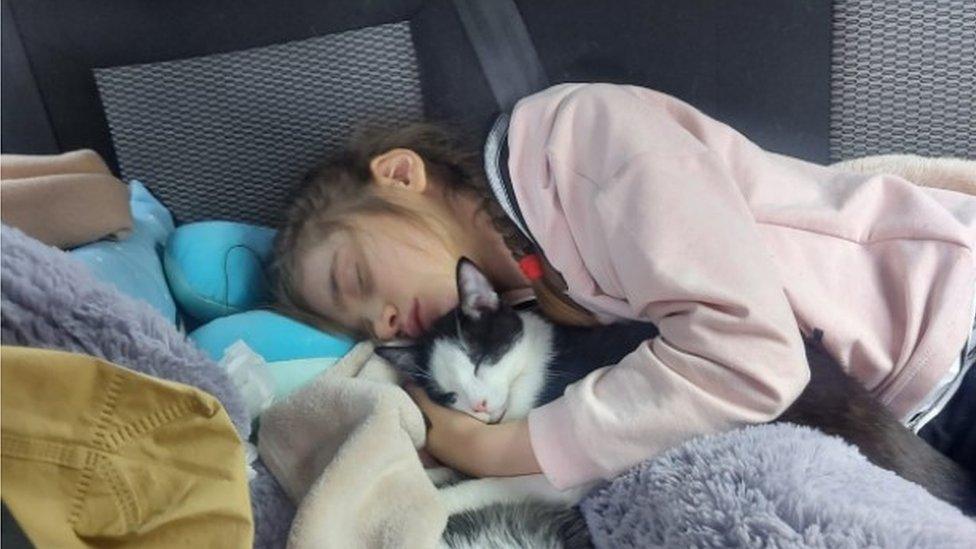
Rita finds comfort in her cats
"We will continue to assess different options to keep the time their pets are in quarantine to a minimum."
The spokesman added there are quarantine places in Wales currently in use and efforts are being made to create more spaces.
The UK government's Department for Environment, Food and Rural Affairs said it had increased resources and streamlined processes to make sure those fleeing Ukraine with pets are not delayed.
"We have introduced a new rapid rabies blood test to cut quarantine times, and lower risk animals are being moved into isolation," he added.
"We are continuing to review processes and increase quarantine capacity - whilst maintaining our biosecurity standards."

HEARTBREAKING DECISIONS: Families fleeing the war in Ukraine
WALESCAST: One-stop shop of what's happening in the world of Welsh politics

- Published21 May 2022
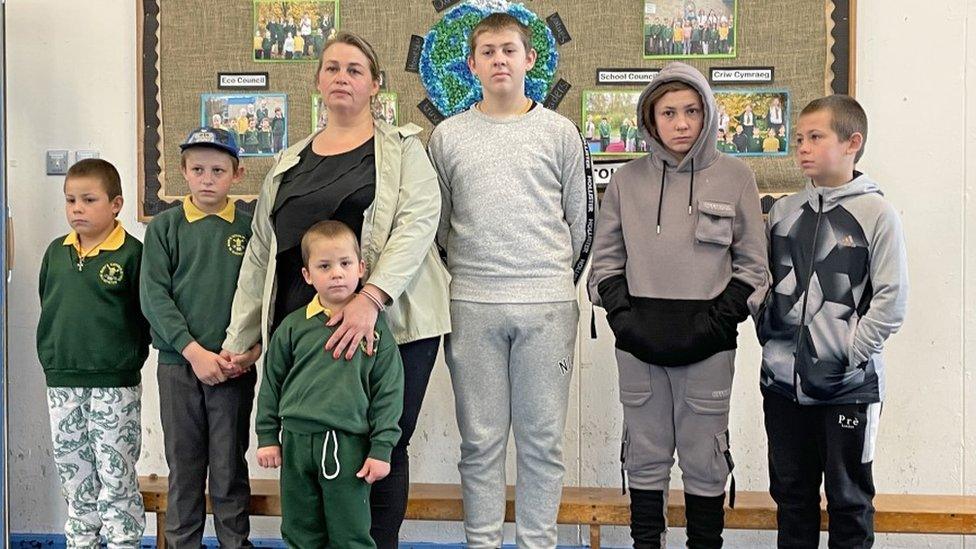
- Published12 May 2022
